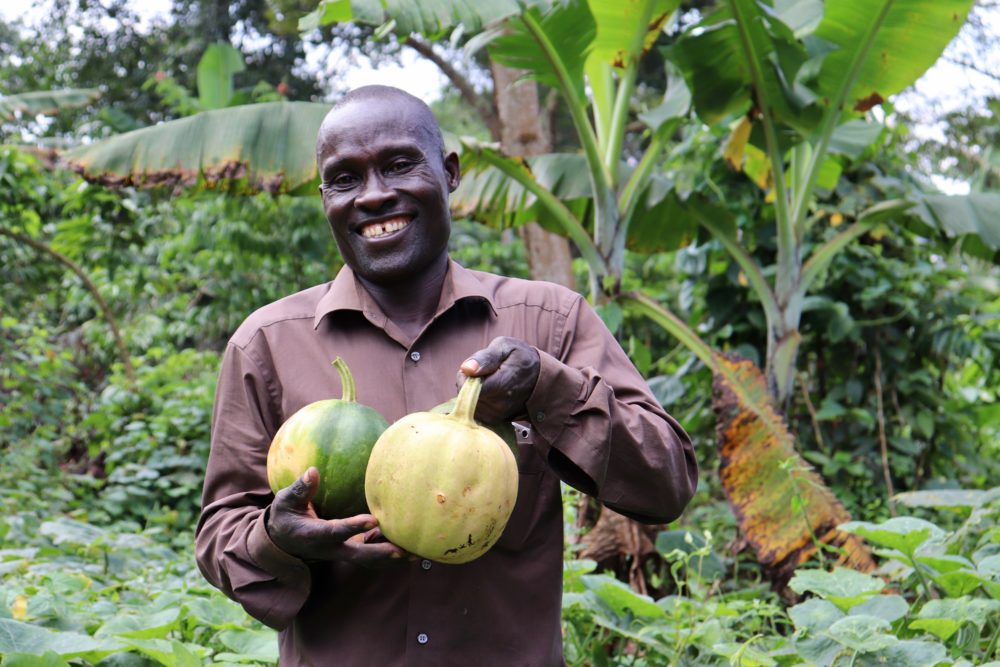Agroforestry for increased food production
Date
October 15, 2019
The recent report on food security and nutrition in the world released by FAO shows that more than 820 million people do not have enough to eat. Placing the food security issue top on our agenda. Vi Agroforestry programmes focus on fighting poverty and improving the environment through agroforestry, hence contributing to the realization of sustainable development goal 2- Zero Hunger.
Our position on food and nutritional security is about sustainable production of adequate food for healthy diets for all through sustainable agriculture and agroforestry methods. These methods increase productivity, enhance adaptation building resilience and reduce or remove greenhouse gas emissions. But how are we achieving this? The answer is agroforestry! Simply growing trees and crops together on farms.
Agroforestry is attributed to productivity, sustainability and adaptability. Agroforestry provides multiple social, economic and environmental benefits. We have observed products such as fruits, nuts, vegetables, fodder, honey, eggs, fish and herbal medicinal products that provide supplies of health and nutritional diets among rural farmers. Agroforestry also provides multiple products such as firewood, sustainable charcoal, timber and poles which are sold to earn households’ incomes. Renewable energy products enhance improved utilization and sustainable cooking of food. Families practicing agroforestry have shown tremendous changes from improved livelihoods, resilience and food security. Agroforestry also contributes to the restoration of degraded agricultural land, agrobiodiversity and mitigation of climate change.
However today we would also like to share some challenges we have encountered inline with agroforestry for food security in our work: They include inadequate access to financial services or credit, unclear land or tree and tenure rights, inefficient markets, limited investment incentives, inadequate access to agroforestry extension services, limited relevant research or evidence and unclear institutions and policy mandated for agroforestry. Currently, Vi Agroforestry is advocating for partner states of East Africa to develop National Agroforestry Policies. The policies will create a framework to adopt agroforestry and increase food and nutritional security in the countries.
Vi Agroforestry success in promoting agroforestry is attributed to farmers and organizations receiving support on capacity building, rural financial services, business development and gender mainstreaming. We have so far planted over 120 million trees and supported over 2.3 million people out of poverty and the journey continues.